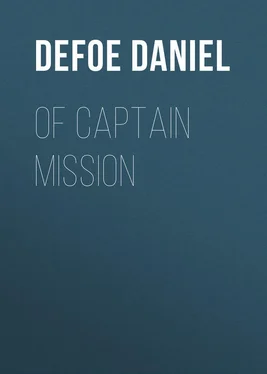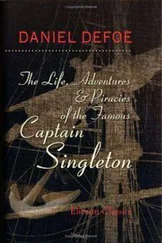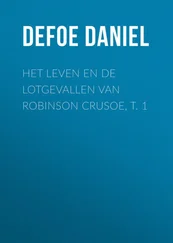Daniel Defoe - Of Captain Mission
Здесь есть возможность читать онлайн «Daniel Defoe - Of Captain Mission» — ознакомительный отрывок электронной книги совершенно бесплатно, а после прочтения отрывка купить полную версию. В некоторых случаях можно слушать аудио, скачать через торрент в формате fb2 и присутствует краткое содержание. Жанр: foreign_antique, foreign_prose, на английском языке. Описание произведения, (предисловие) а так же отзывы посетителей доступны на портале библиотеки ЛибКат.
- Название:Of Captain Mission
- Автор:
- Жанр:
- Год:неизвестен
- ISBN:нет данных
- Рейтинг книги:4 / 5. Голосов: 1
-
Избранное:Добавить в избранное
- Отзывы:
-
Ваша оценка:
- 80
- 1
- 2
- 3
- 4
- 5
Of Captain Mission: краткое содержание, описание и аннотация
Предлагаем к чтению аннотацию, описание, краткое содержание или предисловие (зависит от того, что написал сам автор книги «Of Captain Mission»). Если вы не нашли необходимую информацию о книге — напишите в комментариях, мы постараемся отыскать её.
Of Captain Mission — читать онлайн ознакомительный отрывок
Ниже представлен текст книги, разбитый по страницам. Система сохранения места последней прочитанной страницы, позволяет с удобством читать онлайн бесплатно книгу «Of Captain Mission», без необходимости каждый раз заново искать на чём Вы остановились. Поставьте закладку, и сможете в любой момент перейти на страницу, на которой закончили чтение.
Интервал:
Закладка:
Daniel Defoe
Of Captain Mission
INTRODUCTION
Defoe has been recognized as the author of A General History of the Robberies and Murders of the Most Notorious Pyrates since 1932 when John Robert Moore suggested that the supposed author, Captain Charles Johnson, like Andrew Moreton, Kara Selym or Captain Roberts, was merely another mask for the creator of Robinson Crusoe . Although most of the first volume is of minor literary importance, the second section which appeared in 1728 as The History of the Pyrates commenced with a life "Of Captain Misson and His Crew," one of Defoe's most remarkable and neglected works of fiction. In much the same manner and at the same time that John Gay was satirizing Walpole's government in The Beggar's Opera , Defoe began to use his pirates as a commentary on the injustice and hypocrisy of contemporary English society. Among Defoe's gallery of pirates are Captain White, who refused to rob from women and children; Captain Bellamy, the proletarian revolutionist; and captain North, whose sense of justice and honesty was a rebuke to the corruption of government under Walpole. But the fictional Captain Misson, the founder of a communist utopia, is by far the most original of these creations.
If we were to accept the view of nineteenth-century critics, that Defoe was one of the earliest exponents of laissez faire , his creation of a communist utopia would seem remarkable indeed. But paradoxes fascinated Defoe, and his ideas can seldom be reduced to unambiguous platitudes. He was especially fascinated by the comparison between businessmen and thieves. In 1707 he urged the government to pardon the Madagascar pirates if they agreed to stop their crimes, pay a large sum of money and "become honest Freeholders, as others of our West-India Pyrates, Merchants I should have said , have done before them." And he noted that "it would make a sad Chasm on the Exchange of London , if all the Pyrates should be taken away from the Merchants there." 1 1 ( return ) [ Daniel Defoe, A Review of the Affairs of France , ed. A. W. Secord (New York, 1938), IV, 424a.] 2 ( return ) [ The Anatomy of Exchange – Alley (London, 1719), p. 8.] 3 ( return ) [ A General History of the Robberies and Murders of the Most Notorious Pyrates (London, 1728), II, 220.] 4 ( return ) [ See Cesare Beccaria, An Essay on Crimes and Punishments (Stanford, 1953), pp. 97-99.] 5 ( return ) [ In the previous year Defoe had written that "it was the most dangerous thing in the World for a young Gentleman, sober and virtuous, to venture into Italy , till he was thoroughly grounded in Principle, … for that nothing was more ordinary, than for such either to be seduc'd, by the Subtlety of the Clergy, to embrace a false Religion, or by the Artifice of a worse Enemy, to give up all Religion, and sink into Scepticism and Deism , or, perhaps, Atheism ." A New Family Instructor (London, 1727), p. 17.] 6 ( return ) [ See Ruth Bourne, Queen Anne's Navy in the West Indies (New Haven, 1939), pp. 63, 169-172; and Manuscripts of the House of Lords , New Series (London, 1921), VII, 117-119.] 7 ( return ) [ See Philip Gosse, The History of Piracy (New York, 1934), p. 194; and Patrick Pringle, Jolly Roger (London, 1953), pp. 136-138.] Omne tulit punctum, qui miscuit utile dulci . Hor
Twelve years later just before the start of the South Sea Bubble, Defoe attacked stock-jobbing as "a Branch of Highway Robbing." 2 2 ( return ) [ The Anatomy of Exchange – Alley (London, 1719), p. 8.] 3 ( return ) [ A General History of the Robberies and Murders of the Most Notorious Pyrates (London, 1728), II, 220.] 4 ( return ) [ See Cesare Beccaria, An Essay on Crimes and Punishments (Stanford, 1953), pp. 97-99.] 5 ( return ) [ In the previous year Defoe had written that "it was the most dangerous thing in the World for a young Gentleman, sober and virtuous, to venture into Italy , till he was thoroughly grounded in Principle, … for that nothing was more ordinary, than for such either to be seduc'd, by the Subtlety of the Clergy, to embrace a false Religion, or by the Artifice of a worse Enemy, to give up all Religion, and sink into Scepticism and Deism , or, perhaps, Atheism ." A New Family Instructor (London, 1727), p. 17.] 6 ( return ) [ See Ruth Bourne, Queen Anne's Navy in the West Indies (New Haven, 1939), pp. 63, 169-172; and Manuscripts of the House of Lords , New Series (London, 1921), VII, 117-119.] 7 ( return ) [ See Philip Gosse, The History of Piracy (New York, 1934), p. 194; and Patrick Pringle, Jolly Roger (London, 1953), pp. 136-138.] Omne tulit punctum, qui miscuit utile dulci . Hor
Although these attacks were directed mainly at "trade thieves" and corruptions in business practices, they reflect Defoe's growing concern with problems of poverty and wealth in England. In his preface to the first volume of the General History of the Pyrates , Defoe argued that the unemployed seaman had no choice but to " steal or starve ." When the pirate, Captain Bellamy, boards a merchant ship from Boston, he attacks the inequality of capitalist society, the ship owners, and most of all, the Captain:
damn ye, you are a sneaking Puppy, and so are all those who will submit to be governed by Laws which rich Men have made for their own Security, for the cowardly Whelps have not the Courage otherwise to defend what they get by their Knavery; but damn ye altogether: Damn them for a Pack of crafty Rascals, and you, who serve them, for a Parcel of hen-hearted Numskuls. They villify us, the Scoundrels do, when there is only this Difference, they rob the Poor under the Cover of Law, forsooth, and we plunder the Rich under the Protection of our own Courage. 3 3 ( return ) [ A General History of the Robberies and Murders of the Most Notorious Pyrates (London, 1728), II, 220.] 4 ( return ) [ See Cesare Beccaria, An Essay on Crimes and Punishments (Stanford, 1953), pp. 97-99.] 5 ( return ) [ In the previous year Defoe had written that "it was the most dangerous thing in the World for a young Gentleman, sober and virtuous, to venture into Italy , till he was thoroughly grounded in Principle, … for that nothing was more ordinary, than for such either to be seduc'd, by the Subtlety of the Clergy, to embrace a false Religion, or by the Artifice of a worse Enemy, to give up all Religion, and sink into Scepticism and Deism , or, perhaps, Atheism ." A New Family Instructor (London, 1727), p. 17.] 6 ( return ) [ See Ruth Bourne, Queen Anne's Navy in the West Indies (New Haven, 1939), pp. 63, 169-172; and Manuscripts of the House of Lords , New Series (London, 1921), VII, 117-119.] 7 ( return ) [ See Philip Gosse, The History of Piracy (New York, 1934), p. 194; and Patrick Pringle, Jolly Roger (London, 1953), pp. 136-138.] Omne tulit punctum, qui miscuit utile dulci . Hor
Bellamy asks the crew of the captured ship to abandon the slavery of working for low wages under severe captains for the complete economic and political equality of life on a pirate ship.
Government on Captain Misson's ship, the Victoire , and in the colony of Libertalia is partially an idealization of the pirate's creed. But two other elements which must be considered are, first, the concept of government in the state of nature, and secondly, the ideal of the socialist utopia. Most political theorists of Defoe's time postulated a state of nature in which man lived either entirely free from government or under loose patriarchal control, from which he was removed either by the invention of money, the discovery of agriculture or by some crime. To a certain extent, Misson's pirate government may be regarded as a stage in the evolution of government. In The Farther Adventures of Robinson Crusoe , Defoe showed how government evolved from the anarchy of the state of nature. Both Crusoe's colony and Libertalia are eventually forced to establish government, private property and criminal laws, but Libertalia, which retains its egalitarian and democratic character, is overthrown by its failure to account for human evil and crime.
Читать дальшеИнтервал:
Закладка:
Похожие книги на «Of Captain Mission»
Представляем Вашему вниманию похожие книги на «Of Captain Mission» списком для выбора. Мы отобрали схожую по названию и смыслу литературу в надежде предоставить читателям больше вариантов отыскать новые, интересные, ещё непрочитанные произведения.
Обсуждение, отзывы о книге «Of Captain Mission» и просто собственные мнения читателей. Оставьте ваши комментарии, напишите, что Вы думаете о произведении, его смысле или главных героях. Укажите что конкретно понравилось, а что нет, и почему Вы так считаете.












